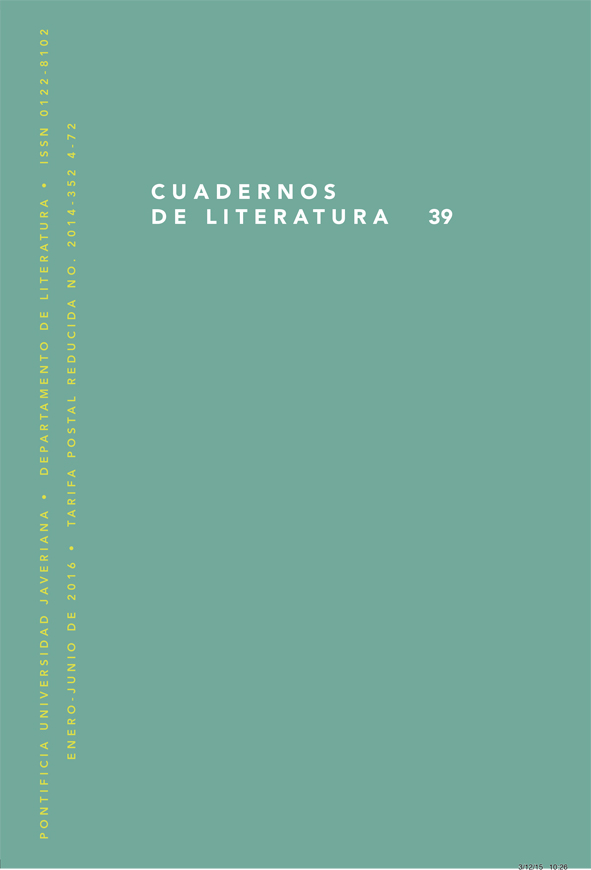Abstract
El Álbum de la Mujer (1883-1890), una de las revistas literarias destinadas al público-lector femenino en México durante el siglo XIX tardío, ofrece una visión particular en cuanto al rol de la mujer de clase media en la sociedad. Entre las varias características que distinguen esta publicación de otras de la época –la dueña y directora extranjera, la inclusión de las perspectivas hispana e hispanoamericana y de grandes obras y autores literarios– la que sirve como enfoque de la presente investigación es el mercadeo del discurso científico a las mujeres decimonónicas. Una investigación detenida de la revista revela que la ciencia, lejos de sostener una única visión coherente en cuanto al lugar de la mujer en la sociedad, funcionaba como un espacio de negociación en el que coincidieron varias perspectivas inesperadas, tanto tradicionales como más resistentes y nuevas.
Cuadernos de Literatura is registered under a Creative Commons Attribution 4.0 International Public License. Thus, this work may be reproduced, distributed, and publicly shared in digital format, as long as the names of the authors and Pontificia Universidad Javeriana are acknowledged. Others are allowed to quote, adapt, transform, auto-archive, republish, and create based on this material, for any purpose (even commercial ones), provided the authorship is duly acknowledged, a link to the original work is provided, and it is specified if changes have been made. Pontificia Universidad Javeriana does not hold the rights of published works and the authors are solely responsible for the contents of their works; they keep the moral, intellectual, privacy, and publicity rights.
Approving the intervention of the work (review, copy-editing, translation, layout) and the following outreach, are granted through an use license and not through an assignment of rights. This means the journal and Pontificia Universidad Javeriana cannot be held responsible for any ethical malpractice by the authors. As a consequence of the protection granted by the use license, the journal is not required to publish recantations or modify information already published, unless the errata stems from the editorial management process. Publishing contents in this journal does not generate royalties for contributors.


